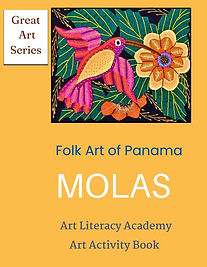Samuel John Peploe Scotland
- Serene
- Nov 15, 2021
- 2 min read
Updated: Mar 10, 2022
Samuel John Peploe
Scotland 1871-1935

Samuel John Peploe , was a Scottish Post-Impressionist painter, noted for his still life's and for being the leader of a group of four painters that became known as the Scottish Colorists. He studied at the Royal Scottish Academy from 1893 to 1894, and then at the Académie Julian and Académie Colarossi in Paris.
As a young artist, Peploe traveled to northern France with, J. D. Fergusson, another fellow Scottish Colorist. Inspired by the bright sunlight, he experimented with the bold use of color and was strongly influenced by French painters. It was a huge departure from the muted and somber landscapes that historically dominated Scottish Art .
In 1910 he moved to Paris, which was the artistic epicenter at that time.
This proved to be a life altering experience , leading to a period of intense experimentation that would transform his painterly style and shape him as an artist for the rest of his life. He immersed himself in some of the most cutting edge movements of the French avant-garde in the early twentieth century, from the color theories of the Fauves and the works of Manet, Pablo Picasso and Georges Braque. He made several trips to the South of France and was further influenced by other artists with bold palettes who lived and worked along the Mediterranean ; Matisse, Derain and the Fauve artists.
His works can be seen in the National Galleries of Scotland and in many International collections. In recent years there has been a renewed interest and appreciation for his work and contributions. He was honored with major retrospectives in 1985 and 2012 . Peploe played a key role in the development of Scottish art history and the birth of Modern Art in Paris in the early part of the 20th century.
Click on images to see the gallery
WEDNESDAY CLASS
This week the classes created mixed media paintings inspired by Samuel John Peploe. The process was new to them and most were very open to the experience and learning the techniques. For the younger newer students it was a big leap from free drawing and crafts to learning step by step art instruction. I really see the benefits in the students that have been in class for several years, and the skills they develop that carry over to many other aspects . I try to emphasize that it is the experience and not the outcome that is most important. With that experience they become more confident to try new materials and styles. I gave them several images to select from and create a rough drawing . The next step was to color the background with paint sticks and then color the smaller details with oil pastels. At that point we went over the pastels
with a cotton ball dipped into oil to blend the colors to create the look of a painting. For the final step they added another layer of color and additional lines. So bright and such lovely colors. It is a complex process, and they followed along well.
I have to applaud the students that did the landscapes with the tower. For an artist of any age, the angles are a challenge and very impressive.
SATURDAY CLASSES
























































Comments